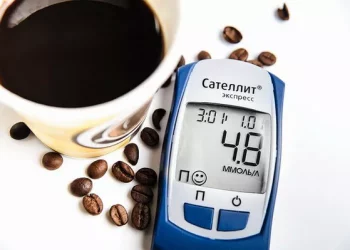Blood sugar, or blood glucose, is an essential marker of health. It provides our body with the energy it needs to function properly. However, maintaining an optimal blood sugar level is crucial for good health. When blood sugar levels rise too high or fall too low, they can lead to significant health issues. In this article, we will discuss what constitutes an unhealthy blood sugar level, the causes of abnormal blood sugar levels, the potential complications of poor blood sugar control, and how to monitor and manage blood sugar effectively to promote overall well-being.
Understanding Blood Sugar Levels
Blood sugar levels are the amount of glucose present in the bloodstream. Glucose is the primary energy source for the cells in our body, especially for the brain and muscles. Blood sugar levels naturally fluctuate throughout the day, influenced by factors such as diet, physical activity, and stress. When we consume food, especially carbohydrates, our body breaks it down into glucose, which then enters the bloodstream.
Normal blood sugar levels typically vary throughout the day. They depend on the time of day and whether a person has eaten. For someone without diabetes, blood sugar levels should ideally stay within certain ranges. A normal fasting blood glucose level (taken after at least 8 hours of fasting) is between 70 and 99 mg/dL. After eating, blood sugar levels can rise but should generally not exceed 140 mg/dL.
What Constitutes an Unhealthy Blood Sugar Level?
An unhealthy blood sugar level refers to blood glucose levels that are too high (hyperglycemia) or too low (hypoglycemia). Both extremes can have serious health consequences and should be monitored and managed effectively.
High Blood Sugar Levels (Hyperglycemia)
Hyperglycemia occurs when blood sugar levels rise above the normal range, typically above 180 mg/dL after a meal or 130 mg/dL when fasting. Chronic high blood sugar levels can result from insulin resistance or insufficient insulin production, which is characteristic of conditions like type 2 diabetes and sometimes type 1 diabetes. It can also result from poorly managed diabetes, stress, illness, or even certain medications.
Symptoms of Hyperglycemia
People with high blood sugar may experience the following symptoms:
-
Increased thirst
-
Frequent urination
-
Fatigue
-
Blurry vision
-
Headaches
-
Difficulty concentrating
-
Unexplained weight loss
If left untreated, chronic hyperglycemia can lead to a variety of long-term complications, including nerve damage (neuropathy), kidney damage (nephropathy), heart disease, and damage to the blood vessels that supply the eyes, which can result in diabetic retinopathy.
Causes of Hyperglycemia
The main causes of hyperglycemia include:
Poor Diet: Consuming high-carbohydrate, high-sugar foods can cause an immediate spike in blood glucose.
Inactivity: A sedentary lifestyle can impair the body’s ability to use insulin effectively.
Stress: Physical or emotional stress can trigger the release of hormones like cortisol, which increase blood sugar levels.
Medications: Certain drugs, including steroids and some blood pressure medications, can raise blood sugar levels.
Illness: Infections or other illnesses can trigger the release of stress hormones, causing blood sugar to rise.
Low Blood Sugar Levels (Hypoglycemia)
Hypoglycemia occurs when blood glucose levels drop too low, usually below 70 mg/dL. While less common than hyperglycemia, hypoglycemia can still occur, particularly in individuals with diabetes who are taking insulin or certain medications to lower their blood sugar. Severe hypoglycemia is a medical emergency that requires immediate intervention.
Symptoms of Hypoglycemia
When blood sugar levels drop too low, individuals may experience:
-
Sweating
-
Shakiness
-
Anxiety or irritability
-
Hunger
-
Dizziness or lightheadedness
-
Confusion or difficulty concentrating
-
Blurred vision
-
Weakness or fatigue
If left untreated, severe hypoglycemia can lead to loss of consciousness, seizures, or even death. Therefore, recognizing the early signs of hypoglycemia and treating them quickly is essential.
Causes of Hypoglycemia
Several factors can cause low blood sugar, including:
Overmedication: Taking too much insulin or other diabetes medications can lower blood sugar too much.
Skipping meals: Not eating regularly can cause blood sugar to drop, especially in individuals who take insulin or certain medications.
Excessive alcohol consumption: Drinking alcohol, especially on an empty stomach, can lead to hypoglycemia.
Excessive physical activity: Engaging in vigorous physical activity without adequate carbohydrate intake can cause blood sugar to fall too low.
The Impact of Unhealthy Blood Sugar Levels
Unhealthy blood sugar levels—whether too high or too low—can have serious consequences on both short-term and long-term health. Understanding the potential impacts is crucial for managing your blood sugar effectively.
Impact of Chronic High Blood Sugar (Hyperglycemia)
Over time, sustained high blood sugar levels can damage various organs and systems within the body. Some of the most common complications associated with chronic hyperglycemia include:
Diabetic Retinopathy
Excessive blood sugar can damage the blood vessels in the eyes, leading to diabetic retinopathy. This condition is a leading cause of blindness in adults. If not properly managed, high blood sugar can lead to vision loss.
Diabetic Neuropathy
Chronic hyperglycemia can lead to nerve damage (neuropathy), which is common in individuals with diabetes. Nerve damage typically starts in the feet and legs, causing pain, tingling, numbness, and in severe cases, loss of sensation.
Kidney Damage (Nephropathy)
High blood sugar can damage the kidneys over time, leading to diabetic nephropathy. This condition can result in kidney failure, requiring dialysis or a kidney transplant. It is one of the leading causes of kidney disease in people with diabetes.
Heart Disease and Stroke
Elevated blood sugar levels increase the risk of developing cardiovascular disease, including coronary artery disease, heart attacks, and strokes. High blood sugar can contribute to the buildup of fatty deposits in the arteries, leading to atherosclerosis.
Poor Wound Healing
High blood sugar can impair the body’s ability to heal wounds and infections. This is particularly concerning for people with diabetes, as even minor cuts or abrasions can become severe infections if blood sugar levels are not well-controlled.
Impact of Low Blood Sugar (Hypoglycemia)
While the short-term effects of hypoglycemia are more immediately concerning, prolonged or recurrent hypoglycemia can also lead to complications. Some of the effects of low blood sugar include:
Loss of Consciousness
If blood sugar drops too low, a person can lose consciousness. This is particularly dangerous for individuals who are alone or driving.
Seizures
Severe hypoglycemia can lead to seizures, which can cause injury and require emergency medical treatment.
Brain Damage
Prolonged hypoglycemia can result in brain damage due to insufficient glucose supply to the brain. This can lead to cognitive impairment and long-term neurological issues.
How to Monitor Blood Sugar Levels
For individuals with diabetes or those at risk for blood sugar issues, regular monitoring of blood glucose levels is essential. Monitoring allows you to track trends and make adjustments to diet, exercise, and medication to keep blood sugar within a healthy range.
Self-Monitoring
The most common way to monitor blood sugar at home is through a glucose meter. A small drop of blood is obtained, usually from the fingertip, and placed on a test strip. The meter then provides a reading of the current blood sugar level. Testing should be done at various times throughout the day, such as before and after meals, before exercise, and at bedtime.
Continuous Glucose Monitors (CGMs)
For individuals who need more frequent or continuous monitoring, a Continuous Glucose Monitor (CGM) is an option. This device provides real-time blood glucose readings and can alert the wearer if blood sugar levels are too high or low.
A1C Test
The A1C test is a blood test that provides an average of a person’s blood sugar levels over the past 2-3 months. It is used to assess long-term blood glucose control. A target A1C for most people with diabetes is below 7%.
Managing Blood Sugar Levels
The key to preventing unhealthy blood sugar levels lies in effective management. This includes making lifestyle changes, managing stress, and following medical advice regarding medications.
Diet
A balanced diet is essential for maintaining healthy blood sugar levels. Focus on whole grains, lean proteins, healthy fats, and a variety of vegetables. Limit high-sugar and high-carbohydrate foods, and avoid processed foods that can cause sharp spikes in blood sugar.
Exercise
Regular physical activity helps improve insulin sensitivity and aids in blood sugar control. Aim for at least 150 minutes of moderate-intensity exercise per week, such as walking, cycling, or swimming.
Medication
For individuals with diabetes, medication may be necessary to help control blood sugar levels. This may include insulin or oral medications, depending on the type of diabetes and the individual’s health needs.
Stress Management
Chronic stress can elevate blood sugar levels. Practicing relaxation techniques such as meditation, deep breathing, or yoga can help manage stress and prevent blood sugar spikes.
Conclusion
Maintaining a healthy blood sugar level is essential for overall health. Both high and low blood sugar levels can have serious consequences, including long-term complications such as heart disease, nerve damage, and kidney failure. By understanding what constitutes an unhealthy blood sugar level, monitoring blood sugar regularly, and managing diet, exercise, and medications, individuals can reduce their risk of developing these complications and improve their quality of life.
Blood sugar management is a lifelong process, and it requires a proactive approach. Regular checkups with a healthcare provider, consistent monitoring of blood glucose levels, and making healthy lifestyle choices are the most effective ways to maintain a healthy blood sugar level and prevent long-term health problems.
Related topics:
When Is the Best Time to Take Your Blood Sugar?



























